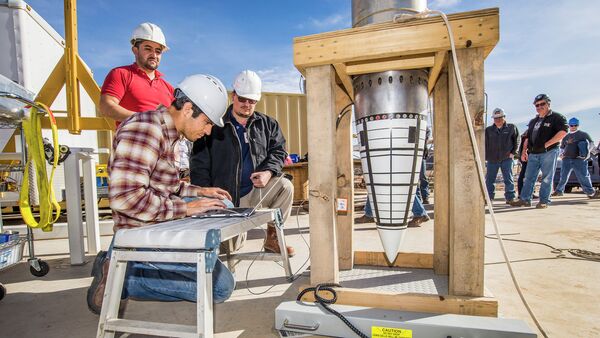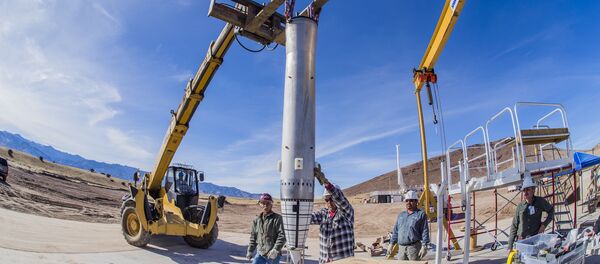MOSCOW (Sputnik) — On Monday, the US Department of Energy’s National Nuclear Security Administration (NNSA) authorized the production engineering phase of the B61-12 nuclear warhead life extension program (LEP). According to the NNSA, the LEP will prolong the B61 lifespan, which contains the oldest components in the US arsenal, for at least 20 years, while improving its safety and reliability.
"The decision to extend the life span of / modernize the system is an unnecessary one, that comes at a sizeable price tag and does the opposite of advancing nuclear security and disarmament. These weapons are a remnant of the Cold War," van Riet said.
He said that in light of tensions in US-Russia ties there is concern that these bombs would be given new purposes and roles in defense doctrines.
"Keeping and extending the life span of these weapons sends the wrong signal and keeps the possibility of these weapons being used by intent, miscalculation or accident alive," van Riet said.
The first production unit of the weapon is planned for 2020, according to NNSA.
The B61-12 LEP is a joint program of the NNSA and the US Air Force to maintain significant part of the US nuclear arsenal. Within the framework of the program, the B61-12 is expected to replace the existing US B61 bombs of its third, fourth, seventh and 10th modifications.


